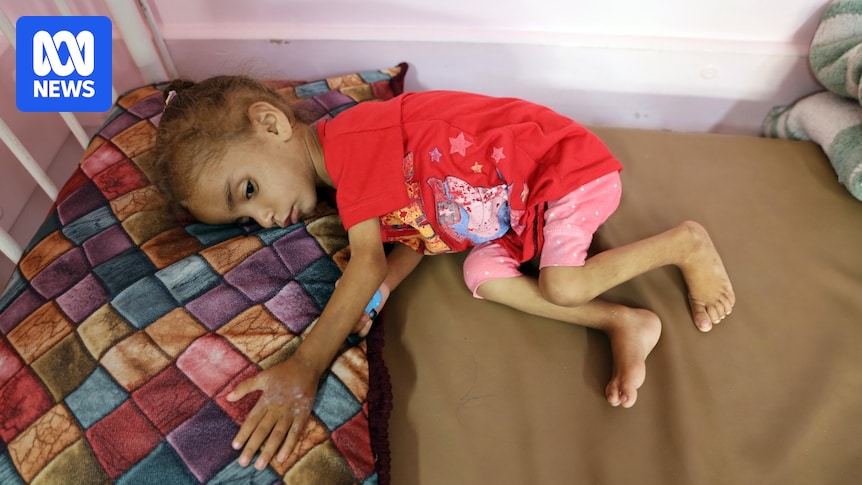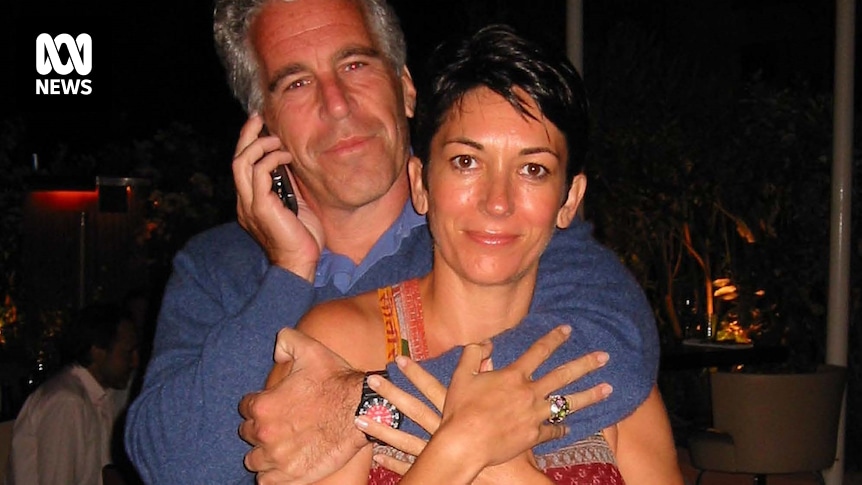
In the wards of Nasser Hospital in southern Gaza, two-year-old Mayar Al-Arja stares into the distance, a haunting image of the humanitarian crisis unfolding in the region. Her mother, Asmaa Faif Al-Arja, watches over her daughter with growing despair, as the ongoing conflict and blockade slowly erode any hope for recovery.
“She doesn’t walk, play, smile, or speak; she does nothing at all,” Asmaa told reporters. “This is the third time I’ve had to bring her to the hospital — each time, I leave hoping she’ll get better, only to return again. She continues to lose weight and is unable to gain any back.”
Mayar, weighing just over 6 kilograms, is suffering from severe malnutrition, a condition exacerbated by the lack of access to protein-rich foods. “She has a severe protein deficiency, her hair is falling out, her skin is peeling, and she suffers from constant diarrhoea,” Asmaa explained. “She doesn’t need complex treatment; she just needs to eat — all she requires is access to special nutritious food, that’s all.”
Food Shortages and Aid Restrictions
The dire situation in Gaza is compounded by Israeli restrictions on aid deliveries. Approximately 70 trucks a day have crossed into the strip since Monday, a number insufficient to meet the needs of the population. The Israeli agency COGAT reported that 240 tonnes of baby food had been delivered earlier this week, but doctors warn that these supplies are not enough to address the crisis.
Dr. Ahmad Al-Farra, head of the paediatrics department at Nasser Hospital, highlighted the growing number of malnutrition cases. “The cases of malnutrition, [children] who have died due to malnutrition, they are increasing day by day,” he stated. “The last statistic is talking about 62 cases expired or died due to malnutrition, and the number of malnourishing cases increasing month by month nearly 150 per cent.”
“The local market now is [a] black market,” Dr. Al-Farra said. “The price of milk is nearly 10, multiplied by 10 times.”
Accusations of Aid Hijacking
On Thursday, Israeli Prime Minister Benjamin Netanyahu and Defense Minister Israel Katz accused Hamas of hijacking aid convoys entering Gaza. Videos circulating on social media, including one posted by former prime minister Naftali Bennett, allegedly show gunmen riding on aid trucks, fueling these accusations.
Hamas, however, denied these claims, stating that “it was Palestinian families and clans who secured the aid convoys in northern Gaza — without any involvement from the Palestinian government or factions — as a purely popular and moral initiative to provide crumbs of food to hundreds of thousands of starving civilians.”
“These cheap lies expose the occupation’s ongoing efforts to ‘engineer chaos’ and spread false narratives as a cover for continuing to block aid and close crossings,” Gaza’s government media office said in a statement.
Humanitarian Concerns and International Criticism
Despite Israeli assurances that aid deliveries have not been suspended, humanitarian agencies criticize the Gaza Humanitarian Foundation (GHF) model. They argue that it undermines established methods of delivering aid, accusing Israel and the United States of weaponizing humanitarian assistance during a time of war.
Palestinian health authorities report that more than 800 people were killed in Israeli strikes across Gaza while the country was engaged in conflict with Iran. The ongoing violence has further complicated efforts to deliver much-needed aid to the region.
As the international community watches, the humanitarian crisis in Gaza continues to escalate, leaving vulnerable populations, especially children, at risk. The situation demands urgent attention and a reevaluation of current aid distribution strategies to ensure that help reaches those who need it most.






